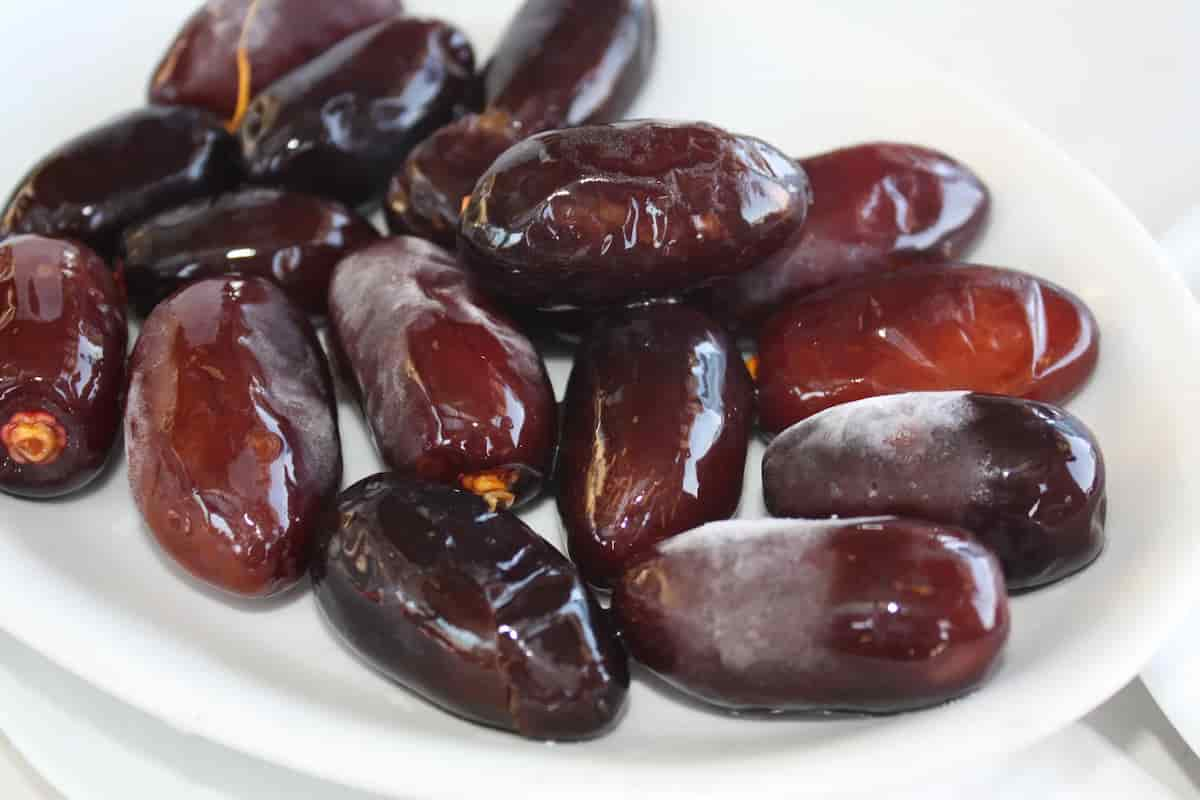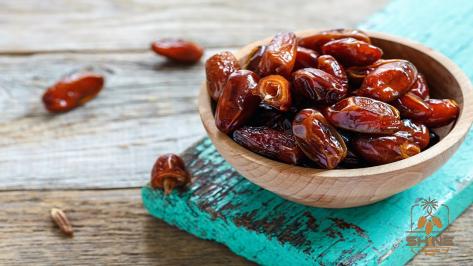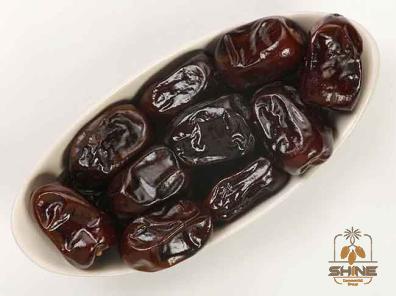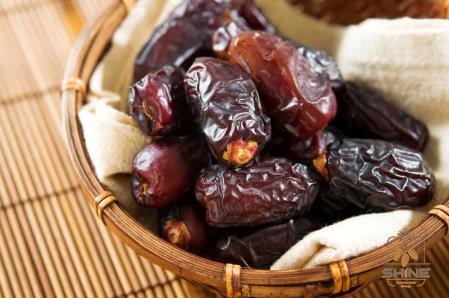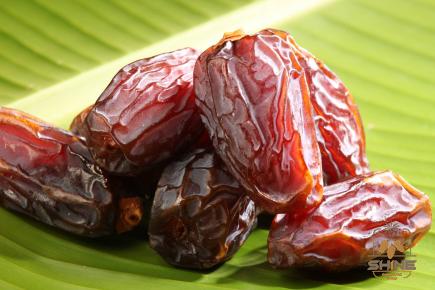Concerned about the consumption of dates during pregnancy and breastfeeding? Although some precautions are taken, Kabkab dates can act as marvelous!
Date consumption during pregnancy is associated with a number of benefits and positive effects, including enhancements to the health of the foetus and an easier and more natural delivery. “The risks associated with eating dates while pregnant”
Numerous obstetricians and gynaecologists (OB/GYN specialists) advise their patients to take a variety of food supplements, such as iron and zinc pills, eat a wide variety of foods, and so on.
Both the mother and the baby experience an increase in their physical and mental strength as a result of taking these supplements.
Consequences of eating dates while pregnant
Dates have a high nutritional value because they are rich in a variety of essential nutrients, including proteins, fibre, vitamins, folate, vitamin B12, and even iron.
This is evident when we examine the contents of a date’s nutritional profile.
Iron is the component that plays the most significant role in the body’s capacity to produce more blood.
Dates are chock-full of various nutrients, including calcium, magnesium, and various other antioxidants.
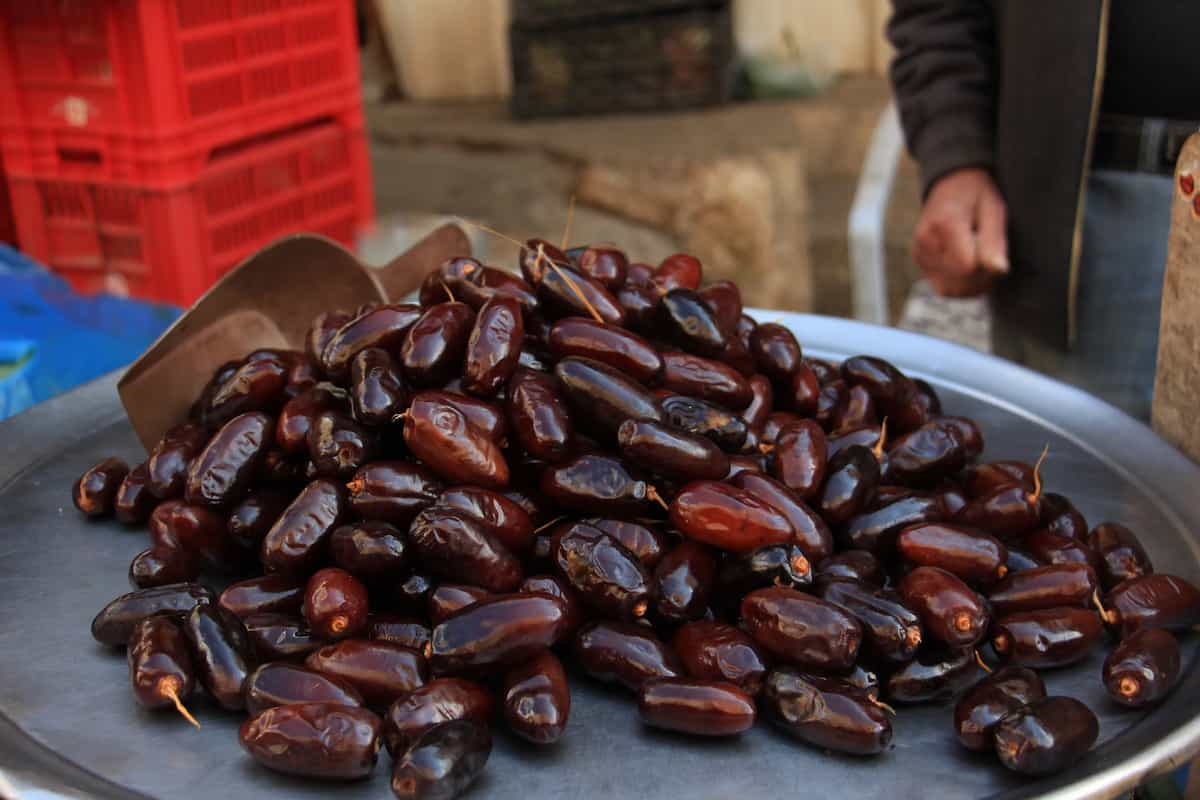
Date consumption during pregnancy is associated with positive health outcomes. Dates have a number of health benefits for pregnant women, one of the most important of which is ensuring a smooth and healthy delivery of the baby.
Dates can help ensure this. Dates, despite the fact that many other items can be of assistance to you, have some interesting features.
Evidence reveals that consuming dates in the final months of pregnancy can shorten the birth process and help with achieving a healthy delivery. If you’re still not convinced about this, you should read the rest of this essay.
If I were to consume dates while I was pregnant, would that be safe? Dates are a healthy food option for expecting mothers to include in their diets.
The fructose included in dates assists the body without affecting the blood sugar levels.
It also has a laxative effect, which means that it speeds up the contractions of the womb and makes the labour phase of giving birth shorter.
What does the study have to say about consuming dates while a woman is pregnant?
Consuming date fruit during the final months of pregnancy has been shown to have an effect on the labour and delivery process, but does not pose any health risks to either the mother or the kid.
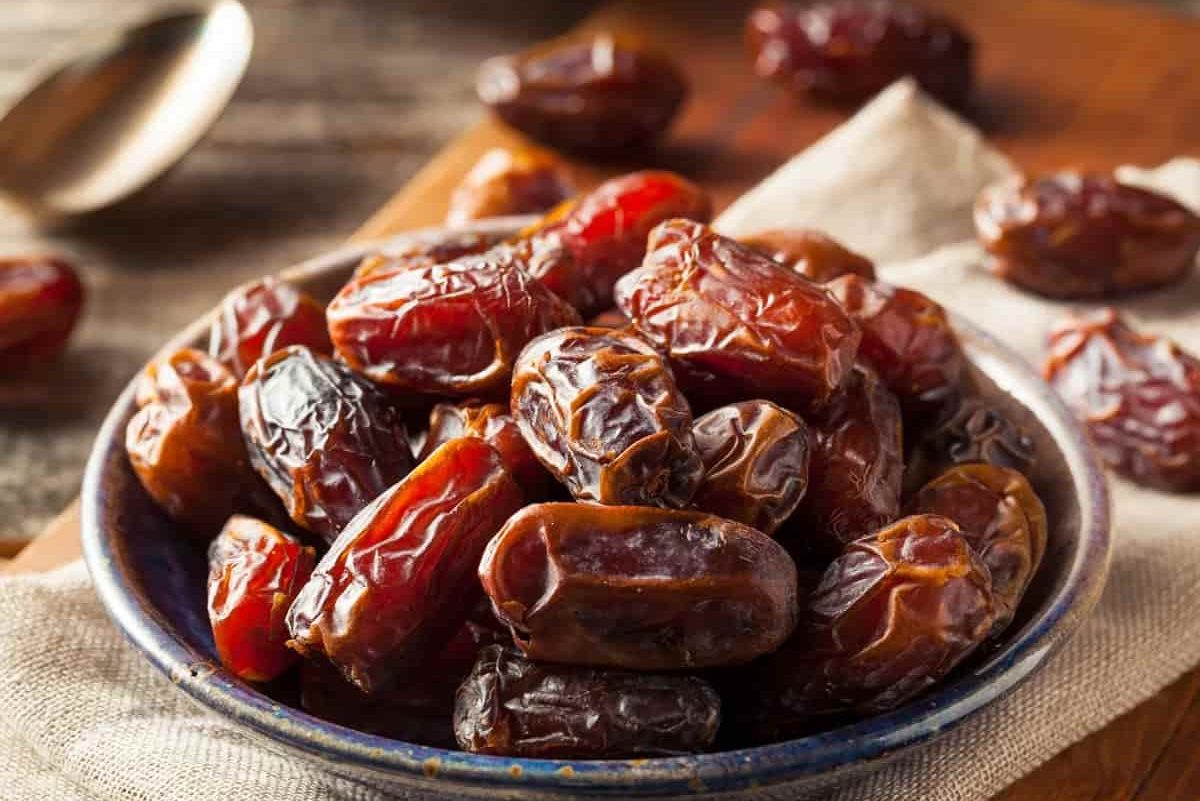
Dates contain the following amounts of key elements per 100 grammes:
- Energy 277 kcal
- Protein 1.8 g
- Fiber 6.7 g
- Fat 0.2 g
- Folate 15 microgram
- Iron 0.9 g
- Vitamin K 2.7 microgram
- Magnesium 54 mg
- Potassium 696 mg
Benefits of dates for pregnant women include the following:
Because of the high levels of protein, fibre, and vitamins that dates contain, it is common knowledge that dates are an excellent source of nutrition and contribute to having a smooth and uncomplicated pregnancy.
Read on to learn more about the advantages of dates for pregnant women:
- They are a source of energy
It would be beneficial if you had more energy than you normally do while you were pregnant. A few dates eaten every day can offer you with the sugars and energy you need without adding any more calories to your diet
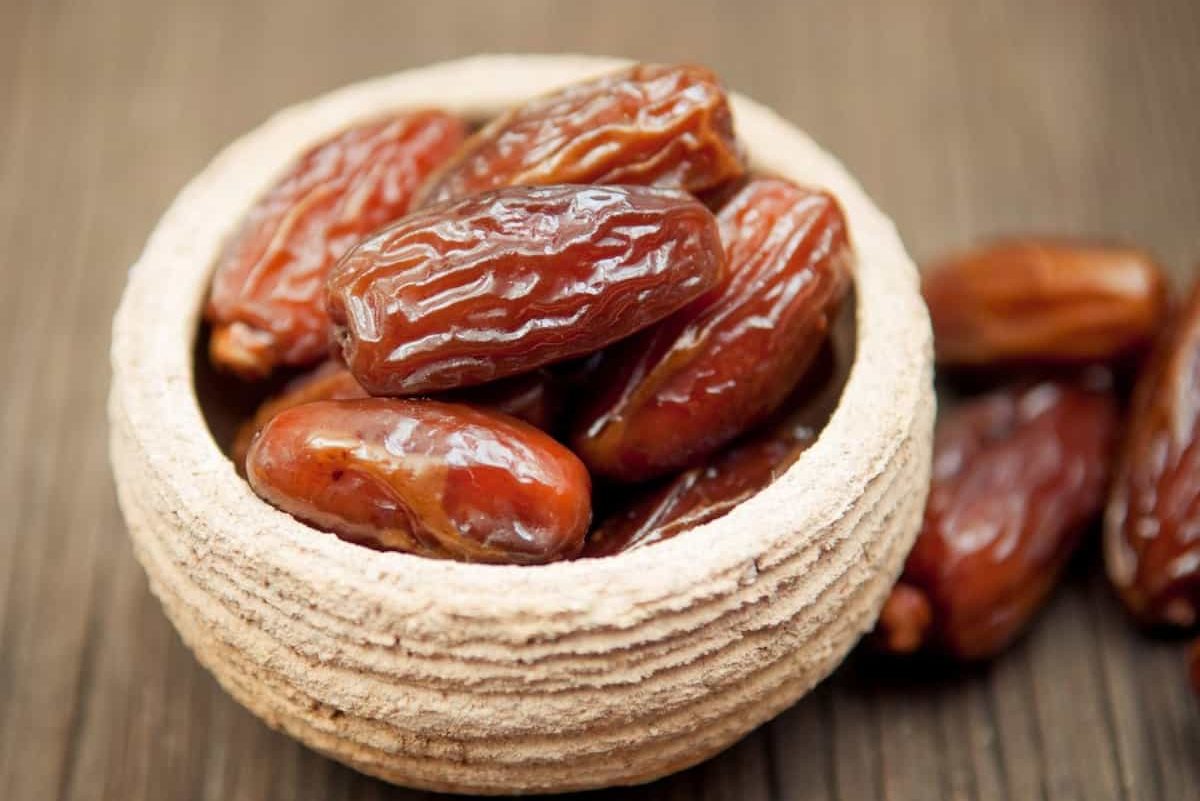
- They have the ability to relieve constipation:
Due to the high fibre content, eating dates regularly during pregnancy helps to keep the digestive tract healthy and eliminates the risk of constipation. They are satiating to the stomach, help lower cholesterol levels, and contribute to the preservation of a healthy body weight.
- They can contribute to the synthesis of amino acids:
Dates provide an adequate amount of proteins to sate the body’s demand for the production of amino acids that are necessary for growth.
- They have the ability to ward off congenital disorders:
Dates are an excellent source of folate. Folate has been shown to be effective in the prevention of certain brain and spinal cord birth defects.
- They are a source of vitamin K for the developing child:
Vitamin K deficiency is a natural condition that exists in newborns. They require this vitamin because it is one of the vitamins that is necessary for the formation of bones and blood clots.
Dates, which the mother eats and then passes on to her child through breast milk, are a source of the vitamin that the infant needs.
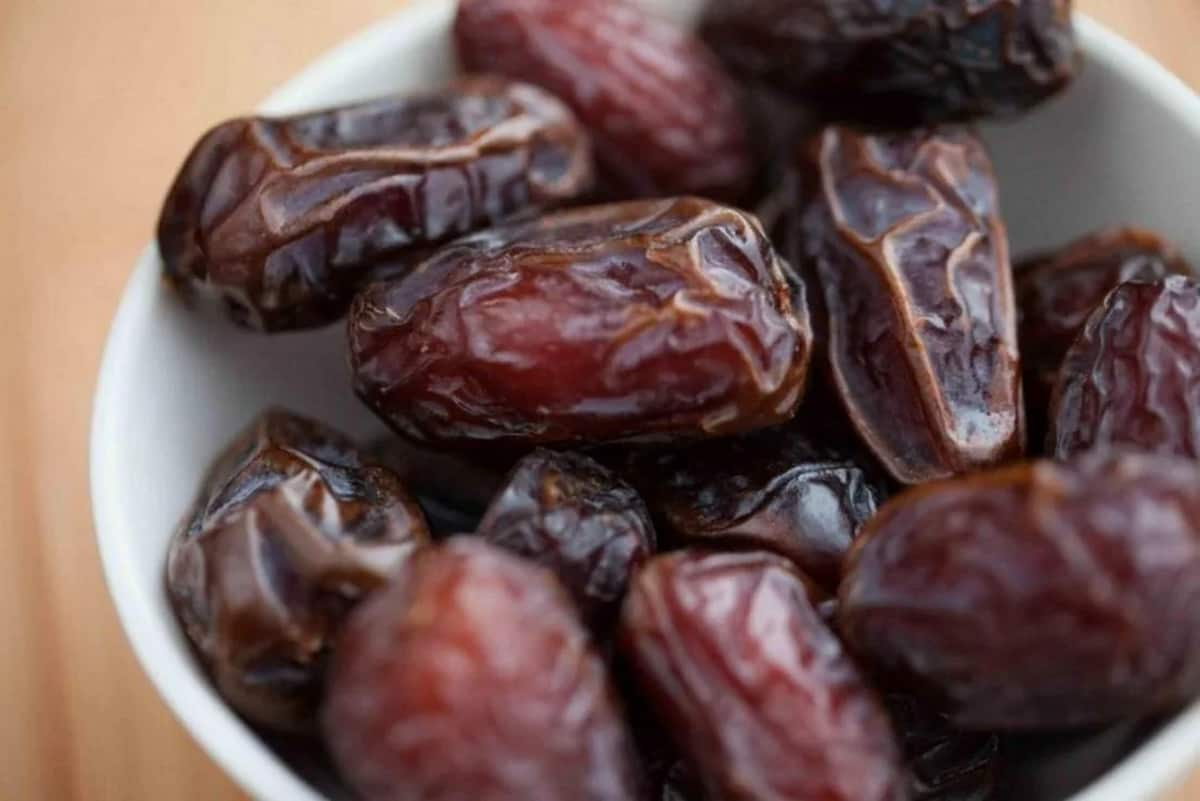
- They are able to ward off anaemia:
Dates can supply the necessary nourishment to women who are pregnant in order to stave off anaemia. Your immune system, as well as the immune system of your child, will benefit from the iron that is included in haemoglobin.
- They have the ability to maintain the salt and water balance in the body
Dates contain potassium, which is vital for controlling the body’s water and salt balance as well as blood pressure.
Dates are beneficial during pregnancy because of this potassium content. In addition to this, it helps reduce muscle cramping. A lack of potassium in the diet might result in kidney issues.
- They improve the baby’s bone and tooth development:
The development of a child’s teeth and bones, as well as the maintenance of normal blood sugar and blood pressure, are all aided by magnesium, which is another one of the important elements.
Dates prevent renal difficulties, which can be caused by magnesium shortage, which can be prevented by eating dates.
How exactly can eating dates aid with the labour and delivery process? Dates are rich in oxytocin, a hormone that stimulates uterine contractions and increases sensitivity.
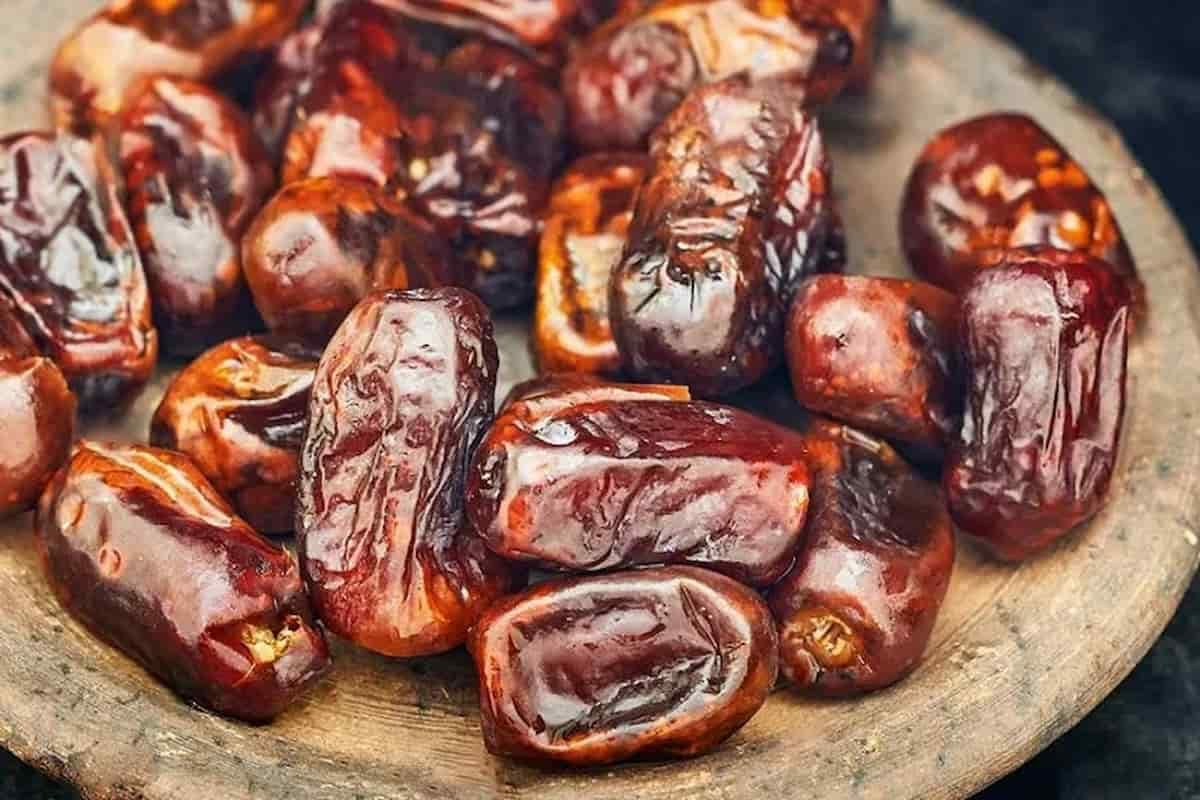
This fruit contains saturated and desaturated acids, both of which play an important part in the process of giving energy and aiding in the production of prostaglandins, which are necessary for birthing.
In addition, the serotonin, calcium, and tannins included in this fruit are beneficial to the female reproductive system.
Caution should be exercised when consuming dates when pregnant. There is no evidence that eating dates during the first, second, or third trimester of pregnancy can have a harmful effect on the baby.
Eating dates, on the other hand, can have the opposite impact and help you feel better. This is especially true if you are suffering from low energy levels or constipation.
Because eating dates during pregnancy is thought to make labour and delivery less difficult, many people try them for the first time during this stage of their lives. Therefore, one of the precautions is the (extremely unlikely) chance of an allergy to dates.
Tingling, itching, or swelling in the area surrounding your lips or tongue are some of the symptoms of an allergic reaction. If you have any of these symptoms, you should immediately stop eating dates.
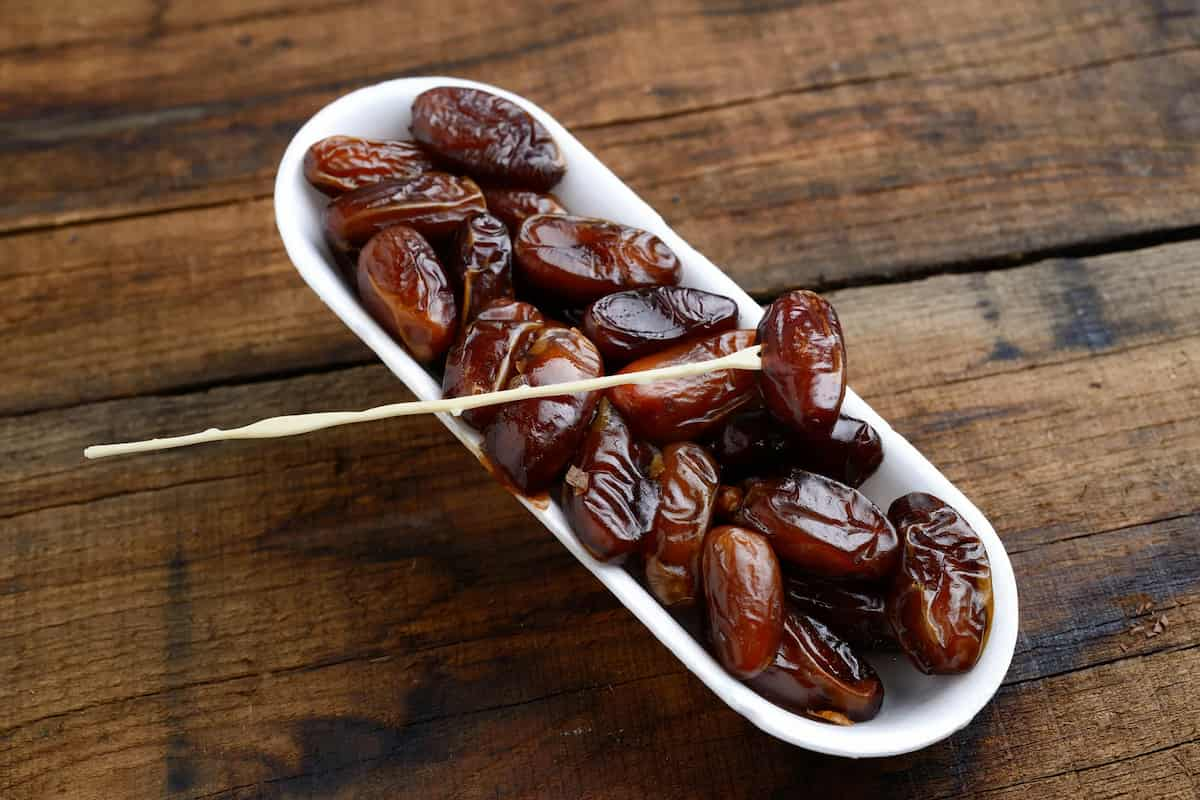
kabkab dates during pregnancy and precautions taken
Need to know the precautions taken during pregnancy when it comes to Kabkab dates? This article will tell you everything!
Dates have been shown to increase the sensitivity of the uterus by enhancing the influence of oxytocin, which is responsible for uterine contractions.
Dates contain both saturated and unsaturated fatty acids, both of which are necessary for the production of prostaglandins, which are essential for labour. Prostaglandins are involved in the uterine contractions that occur during labour, as well as increased bowel movements, improved gastric mucosal defences, and increased renal blood flow.
Dates include serotonin, calcium, and tannins, all of which contribute to the uterine muscles’ ability to become more contracted.
When it comes to pregnancy, dates present some unique challenges. According to the information provided by the department of newborns and pregnancy, there are a few different ways that dates can be consumed.
- Smoothie: A delicious smoothie can be made by blending yoghurt and dates together.
- Dates, sesame seeds, and unadulterated honey should be included in the dessert.
- To make date syrup, place some dates and syrup in a blender, puree until smooth, and then drizzle over ice cream, waffles, toast, or cereal.
- Dates can be used as an acceptable substitute for sugar in beverages such as milk and fruit juice.
- Dates and nuts are blended together and then poured on top of a pie. Enjoy!
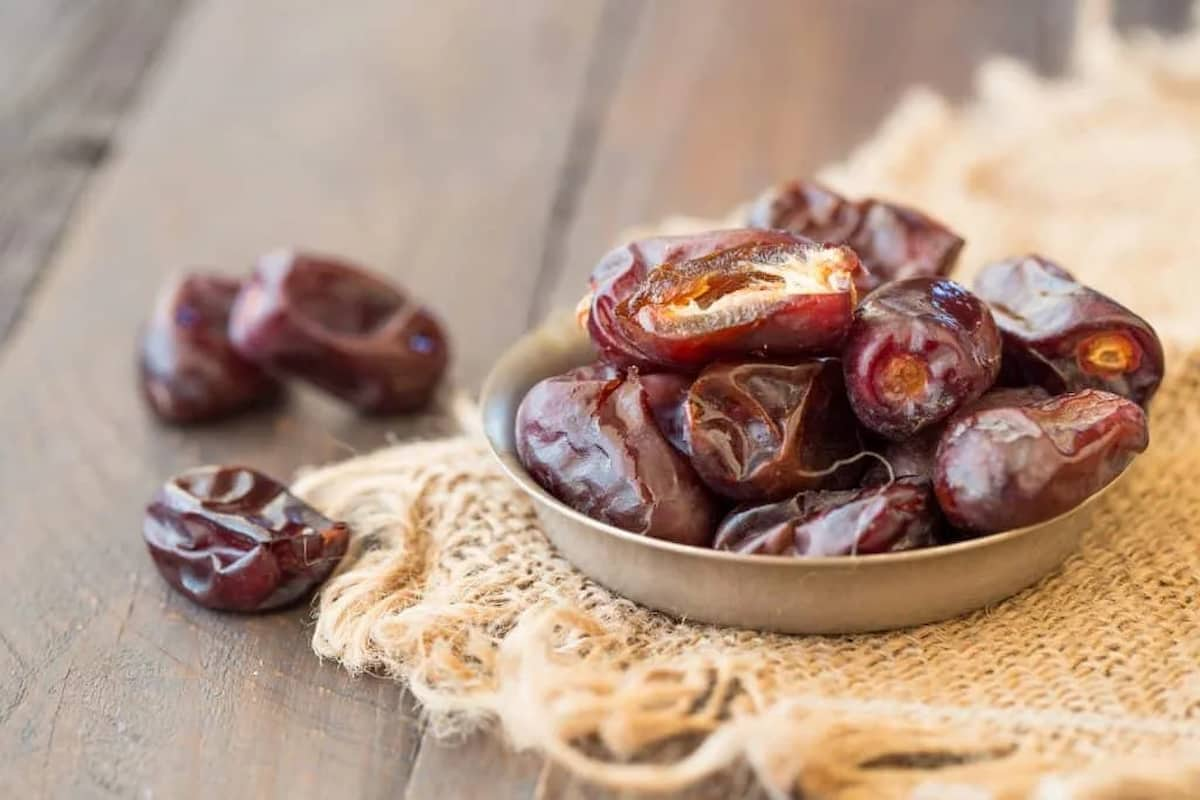
- Cookies: If you want your cookies to have a more delicious flavour and a more pleasing texture, you can improve them by adding dates.
- To prepare the stuffed dates, first peel the potatoes. If you are not allergic to peanuts, you should use them in place of other types of nuts.
- Food Roll: Wrap a large piece of bread or a tortilla around a piece of cooked chicken, tuna fish, and assorted veggies.
Dates, along with a variety of your favourite fruits, can be blended together to create a delicious parfait.
There are several distinct varieties of dates, including red dates, black dates, soft dates, dry dates, and others.
Dates that are soft and wet have a high level of sweetness, but semi-dry dates have a lower level of sweetness and are more difficult to chew.
Dry dates are not typically eaten in their raw form because they are more commonly utilised in confectionery. Dates, regardless of their kind, can serve as a delicious and nutritious snack.
When is the safest time to consume dates while pregnant?
Dates are safe to eat throughout all stages of pregnancy, so feel free to snack on them whenever you like. You need to keep a close eye on the quantity that you put into your body.
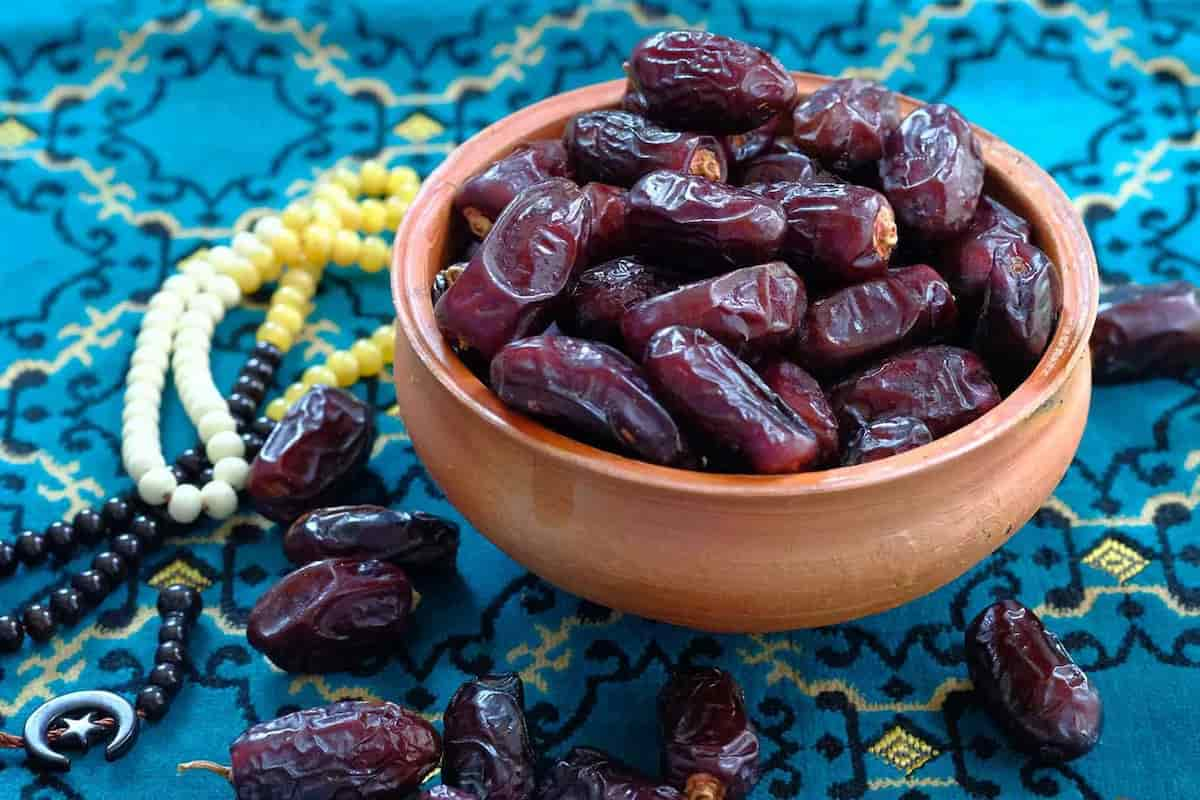
In the first three months, it’s not uncommon to struggle with constipation.
Dates have the potential to remedy this problem; however, it is best to consume them in moderation, particularly if you have problems with your blood sugar or have the blood type B.
There is a possibility that you will develop gestational diabetes (also known as pregnancy diabetes).
Date consumption during the third and final trimester of pregnancy has been shown to shorten and simplify labour and delivery.
Beginning in week six of their pregnancies (that’s four weeks before the due date! ), pregnant women are allowed to consume up to 36 dates.
Dates are believed by some women to make the body warmer and to upset the stomach, thus during the summer months, they refrain from eating dates. However, these are not supported by any scientific evidence.
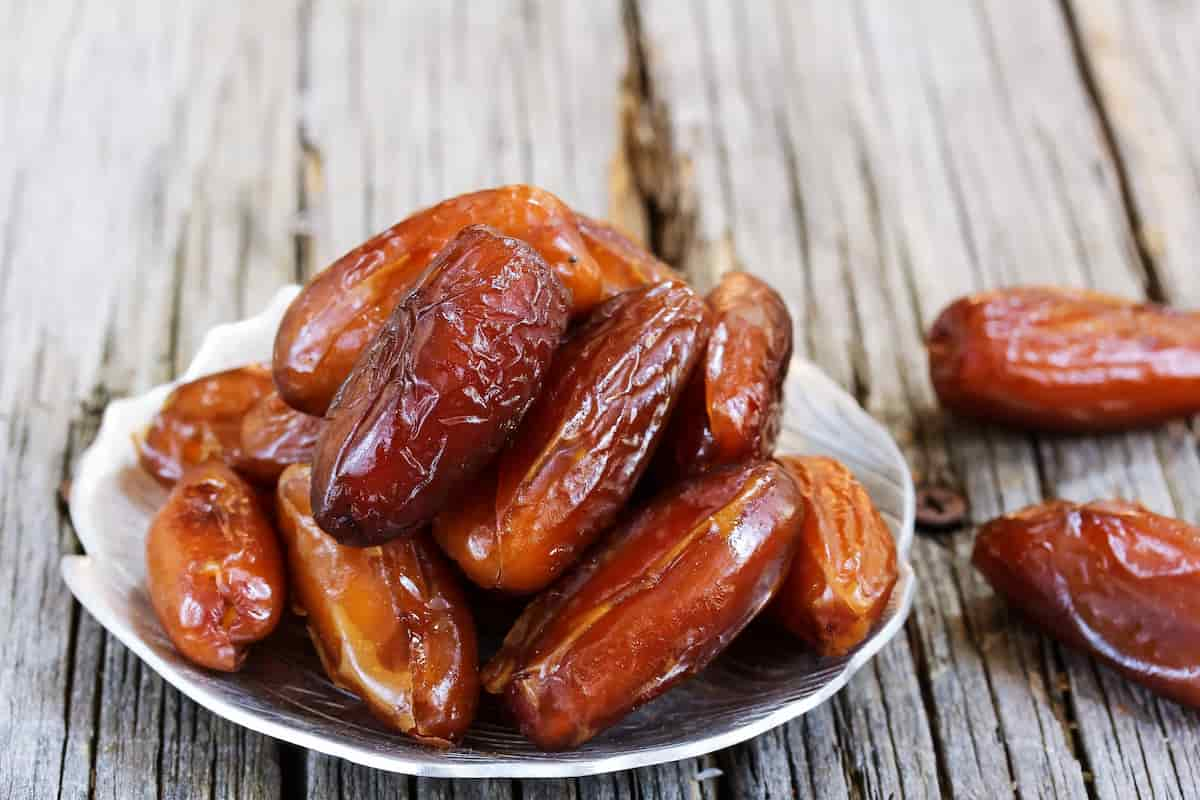
kabkab dates during pregnancy
Negative effects of eating dates, Kabkab or Medjool, during pregnancy include the following:
As long as they are ingested in the appropriate amounts, dates do not cause any negative side effects. On the other hand, if an excessive amount of them is consumed, the following negative effects can occur:
- Extra weight carried throughout the pregnancy
- High blood sugar
- A higher likelihood of developing gestational diabetes
- If you don’t take care of your teeth, you could end up with cavities.
Listed below are some of the most frequently asked questions regarding dating while pregnant:
Is it okay to consume Medjool dates while one is carrying a child? Dates are safe to eat during pregnancy, and Medjool dates in particular provide all of the essential nutrients and vitamins that a pregnant woman needs.
They are a wonderful source of carbohydrates, proteins, lipids, and fibre all in one convenient package. They are also low in the amount of fats that they contain.
They contain a significant amount of vitamins, including pantothenic acid, pyridoxine, folic acid, niacin, riboflavin, thiamine, as well as vitamins A, C, and K. The baby’s metabolism and overall development are both significantly impacted by each of these vitamins.
Iron has been shown to lower cholesterol levels in the body, which in turn lowers the risk of developing cardiovascular disease. Dates, thanks to their high antioxidant content, can help stave off malignant tumours.
Is it OK to consume red dates while one is pregnant? Side effects of eating dates while pregnant: Despite the fact that dates are nutritious fruits, you should always check with your physician before consuming dates during pregnancy to see how much you can eat and when.
Even though dates are a healthy and nutritious fruit, you should always check with your physician before consuming them to see how much you may safely consume and when.
